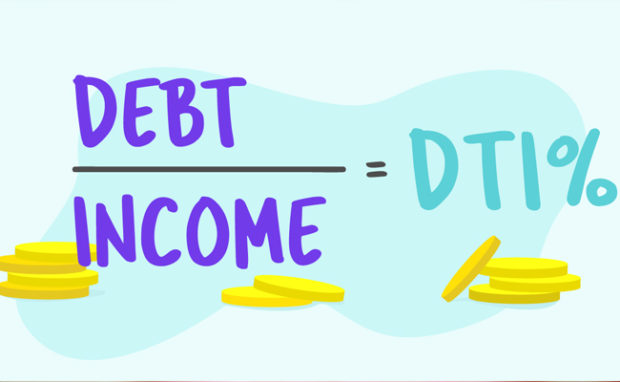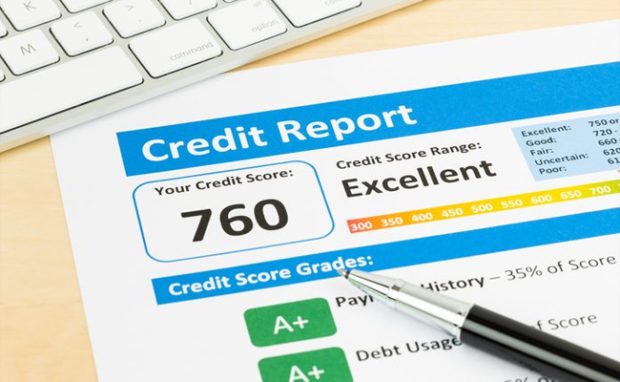Applying for a Home Loan: 5 Things You Need to Know
Are you considering applying for a home loan but need help figuring out where to start? Qualifying for a home loan have several steps and considerations, from understanding your credit score to finding the right mortgage lender. This article will guide you through the five essential steps to help you qualify for a home loan smoothly and efficiently.
Home Loan vs. Mortgage
Before we proceed, it’s important to determine the difference between a home loan and a mortgage. “home loan” and “mortgage” are often used interchangeably but differ slightly in their meanings.
Unlike a home loan, a mortgage loan involves borrowing money from a lender to finance a property. When comparing a mortgage loan and a home loan, the major difference is that the lender has the legal right to take possession of the property if the borrower fails to make timely payments.
This type of loan requires collateral, meaning the property is at risk when borrowing money from a lender. As a result, mortgage loans are considered secured loans due to collateral involvement in the transaction.
Types of Home Loans
Several types of mortgages are available to borrowers. Each has its own characteristics and eligibility requirements. Here are some common mortgage types:
Conventional Loans
These are mortgage loans offered by private lenders and are not government-backed. Government-backed loans usually have lower credit scores and down payment requirements than non-government-backed loans.
FHA Loans
First-time homebuyers often seek loans insured by the Federal Housing Administration (FHA). They have more flexible credit requirements and lower down payment options, making them more accessible to borrowers with limited financial resources.
VA Loans
VA loans are exclusively available to eligible veterans, active-duty service members, and surviving spouses. The U.S. Department of Veterans Affairs backs these loans. They offer favorable terms such as lower interest rates, no down payment requirements, and no mortgage insurance.
USDA Loans
These loans are designed for low- to moderate-income borrowers purchasing homes in rural areas. They are backed by the U.S. Department of Agriculture (USDA) and offer attractive terms, including zero down payment options.
Adjustable-Rate Mortgages (ARMs)
Unlike fixed-rate mortgages, ARMs have interest rates that can change over time. They typically offer a lower initial interest rate for a specific period, after which the rate adjusts periodically based on market conditions.
Jumbo Loans
Jumbo loans refer to mortgages that go beyond the limits of conforming loans. Higher-priced properties typically require a higher credit score and down payment, a common requirement for their financing.
Borrowers must explore the different mortgage types available and choose the one that best suits their financial situation, homeownership goals, and eligibility criteria. Consulting with a mortgage professional can help provide guidance and ensure the right mortgage choice is made.
Steps to Qualify for a Home Loan
Are you looking to qualify for a home loan but need help figuring out where to start? From understanding credit scores to finding the right mortgage, learn the essential steps to secure a home loan efficiently. Here are the five steps on how to qualify for a home loan.
1. Search for a Home Loan That’s Suitable for Your Income Status
When searching for a home loan, finding one that aligns with your income status is crucial. Consider two common types: fixed-rate and adjustable-rate mortgages.
Fixed-rate mortgages offer stability with consistent rates throughout the loan term. Adjustable-rate mortgages initially provide lower payments but can increase later. Evaluate each loan’s criteria and benefits, such as equity and tax deductions.
Research lenders and compare their requirements; some offer first-time grants and down payment assistance. Pre-approval from a mortgage bank is crucial when making an offer on a house.
2. Decrease Your Debt-To-Income Ratio
The debt-to-income ratio (DTI) is a financial metric that checks your total monthly debt payments to your gross monthly income. It tells your ability to manage and repay your debts.
To calculate your DTI, add all your monthly debt obligations, including mortgage or rent payments, credit card payments, student loans, car loans, and other outstanding debts. Simply divide the total by your gross monthly income (before taxes) to calculate the ratio. The resulting percentage represents the ratio.
Lenders often consider DTI when assessing loan applications, as a lower DTI indicates a lower-risk borrower with more capacity to take on additional debt.
Applying for a home loan is one thing; paying back is another. Your debt-to-income ratio indicates the possibility of you paying back the loan. Ensure your credit card balance is as low as possible to be considered for lower monthly payments.
You May Also Like: What Is a Good Debt to Income Ratio?
3. Analyze Your Credit Report
As said earlier, your credit score is a great factor; the only way to know your credit score is by asking for credit reports.
Request from the three credit bureaus, TransUnion, Equifax, and Experian. Go to Annual Credit Report to get your free credit reports.
After getting your credit report, checking for errors and negative accounts is necessary. If you detect any incorrect data, you can query it directly from each credit bureau. Any unverified error is legally removed after 30 days.
4. Maximize Your Credit Score
Maximizing your credit score is essential when applying for a home loan. A higher credit score gets more favorable loan terms, including lower interest rates and borrowing limits.
To boost your credit score, pay your bills on time, decrease any debts you owe, and maintain low balances on your credit cards. It is important to check your credit report regularly to catch any mistakes or inconsistencies and make the necessary corrections.
Avoid opening new credit accounts unless necessary and maintain a healthy credit utilization ratio. Establishing a reliable credit history requires patience, but it’s worth it. This will greatly affect your eligibility for a home loan and save you money in the future.
Some mortgage programs require a minimum of a 620 credit score, while the FHA sometimes requires only a 580 credit score. First-time buyers are often considered regardless of their lower credit score compared to an average American.
5. Know the Worth of the House
I think knowing the worth of the house you want to buy is crucial. Applying for a home loan helps you determine if the property is within your budget and ensures you don’t overextend yourself financially.
A thorough evaluation of the house’s value involves location, property condition, comparable sales, and market trends. Consider working with a professional appraiser or real estate agent who can provide an accurate assessment.
Understanding the house’s worth allows you to make an informed decision, negotiate effectively, and ensure that your debt-to-income ratio remains manageable for a successful home loan application.
Related Articles
How to Get a House Loan?
What’s the Best Fixed Rate for Your Mortgage?
Get Pre-Approval From Your Mortgage Bank
Preapproval from your mortgage bank is vital in qualifying for a home loan. Getting pre-approved will give you a precise idea of the amount you can borrow, which will assist you in creating a realistic budget for your home search.
It includes giving necessary documents, such as income statements, bank statements, and credit history, to the lender for evaluation. With pre-approval, you gain a competitive advantage in the real estate market as sellers and agents take you more seriously. It makes the loan process faster and gives you confidence in making offers.
Remember to compare offers from different lenders and understand their requirements to choose the best mortgage option for your needs. Real estate agents would only attend to you with a pre-approval letter.
It would help if you saw your mortgage lender. They’re always ready to attend to you. All you need to do is bring along the necessary documents.
To get pre-approved, the lender must verify your credit score, monthly income, bank statements, and other necessary documents. You’ll need to bring this pre-approved letter before making an offer on the house.
Note: not all lenders have the same requirements. It would help if you made inquiries from many lending agencies before settling for one. The states are filled with many first-time grants and down payment assistance. All you’ve got to do is keep searching. Knowing various loan quotes is a huge plus for you. It gives you an edge while negotiating with your lenders.
Final Thoughts on Home Loan Qualifications
While a good credit score is important, you must be sure you’ve got the financial capacity for a house loan. As recommended earlier, choosing a house loan with low DTI ratios is better.
Following these home loan steps carefully will make the loaning process easy and swift.
Your credit history and credit report are crucial when applying for a home loan. Lenders generally look for a minimum credit score and evaluate your debt-to-income ratio. The mortgage application process involves submitting financial documents such as pay stubs, business tax returns (for self-employed individuals), and investment account statements. There are two ways to apply for a mortgage: online or through a loan officer.
Different loan types have varying interest rates, down payment requirements, and mortgage insurance. Lenders provide loan estimates, which include closing costs and monthly payments, helping you choose the best mortgage loan for your needs. Working with a real estate agent can guide you through the home-buying process, while a larger down payment and higher credit score can increase your chances of mortgage approvals.
FAQs
What factors determine the interest rate on my home loan?
Several factors influence the interest rate on a home loan, including your credit score, loan type, loan term, down payment, and market rates. A higher credit score typically qualifies you for lower interest rates. Additionally, fixed-rate loans tend to have higher interest rates than adjustable-rate mortgages (ARMs) initially, but the rate remains constant throughout the loan term. Discussing interest rate options with your lender and considering how they fit into your long-term financial plans is important.
What is mortgage insurance?
When applying for a home loan, a mortgage insurance might come up. It is a policy that protects lenders if the borrower cannot pay the loan. If the down payment for the home is less than 20% of its purchase price, this is usually a requirement. Conventional loans may require private mortgage insurance (PMI), while FHA loans have mortgage insurance premiums (MIP). VA loans do not need it. It’s important to factor in the insurance cost when considering different loan options.
How long does the home loan application process typically take?
The home loan application process can vary in duration depending on factors such as the loan’s complexity, the borrower’s responsiveness, and the lender’s efficiency. On average, the process can take 30 to 45 days from the time of application to loan approval and closing. However, it’s important to note that unexpected delays can occur, so it’s advisable to start the process early and stay in regular communication with your lender to ensure a smooth and timely process.
Published on Jan 26, 2019; Updated on June 17, 2023.








